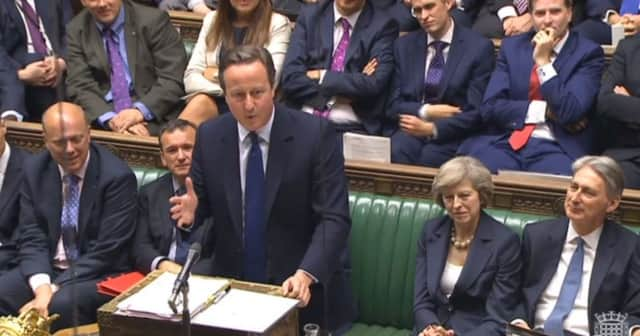DEFRA staff receive counselling


This is the department headed up by leave advocate turned not so sure, Michael Gove, whose officials have been inflicting stress on farmers because of their failure to agree how the industry will be supported after Brexit. The stress of not making decisions is such that staff have had to have our hard-earned tax pounds spent on counselling. This one you really could not make up. If anyone is suffering stress it is the farming lobby.
Since the 2016 referendum it has found progress with DEFRA officials and ministers akin to trying to nail the proverbial blancmange onto a wall. If there is stress in the equation it is entirely on the farmers’ side. Officials, now receiving counselling, have the joy of set hours and the privilege of a pension impossible to match in the private sector. That a minister such as Gove could sign off on this is amazing – but it is just further evidence of the disconnect between politicians, officials and economic reality.
Advertisement
Advertisement
Given what is happening with Brexit counselling is probably now a growth industry. No matter how you view Brexit, watching the UK becoming a global laughing stock is not a rewarding experience. Some MPs are now learning that when you reject what might have been an acceptable deal you risk ending up with something worse and being sidelined in the process. Egos are bruised, but in time all the fire and brimstone of now will eventually be forgotten.
Those who voted for Brexit, and that includes many farmers, must now be disappointed. What they were promised was less red tape and a simple trading relationship with the EU-27 and the rest of the world. Maybe that was hope over expectation rather than deliberate political lies, but as time has gone on it has become clear that the process of leaving the EU after 45 years is more complex than anyone imagined. One reason is that most politicians are not prepared to take the economic risk of testing a free market WTO rules exit. In a world of huge trading blocs and alliances it was perhaps never practical for a country of 60 million people to think it could go it alone.
The prime minister, Theresa May, is taking all the blows from those whose Brexit hopes have been dashed, but the blame lies with others.
David Cameron was wrong to try to boil a complex issue down to a yes/no vote; he was equally wrong to cut and run when it went wrong. On the other side, leave campaigners did not give people the full facts, although charitably it was impossible to forecast then the mess the process has become. Where they were dishonest was over savings from Brexit and their claim that the EU-27 could not afford to do without the UK and would agree the quickest trade deal in history. We know now the EU is ready to accept the financial pain and the easy trade deal has become one of the most difficult in history.
Advertisement
Advertisement
The talk now is of a customs union, although given the way things have gone that could change again next week. For farmers the only real question is whether this can deliver a good outcome, and in theory it should. It would maintain access to the single market, but not on the terms we have now. For example, French farmers could block imports and proving that illegal would neither be as automatic or as easy as now.
That is because it would be an EU trade treaty rather than single market rules being ignored. A customs union would probably eliminate separate trade deals by the UK beyond the EU-27 and that would hopefully prevent a surge of cheap food imports. This has always been the biggest threat to farming and avoiding that outcome would be good news.
On the input side a customs union would make it simpler and hopefully cheaper to import from eurozone countries as there would not be the risk of tariffs. There would be a political price for agreeing a customs union, but no deal has ever been brought over the line without compromise. It and common sense are not the bad words some politicians make them out to be.